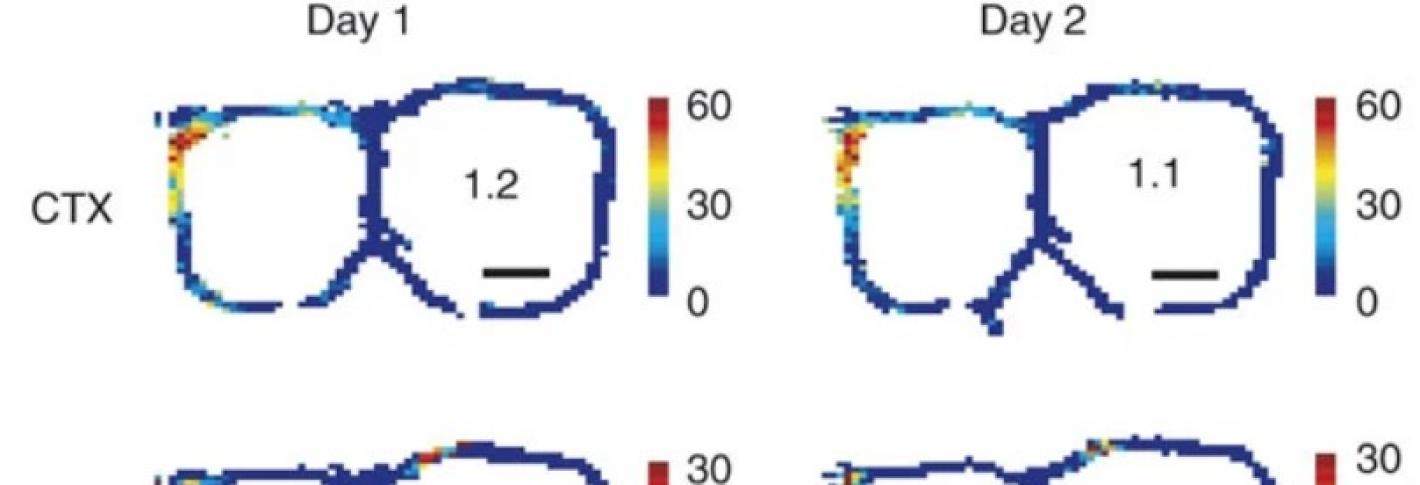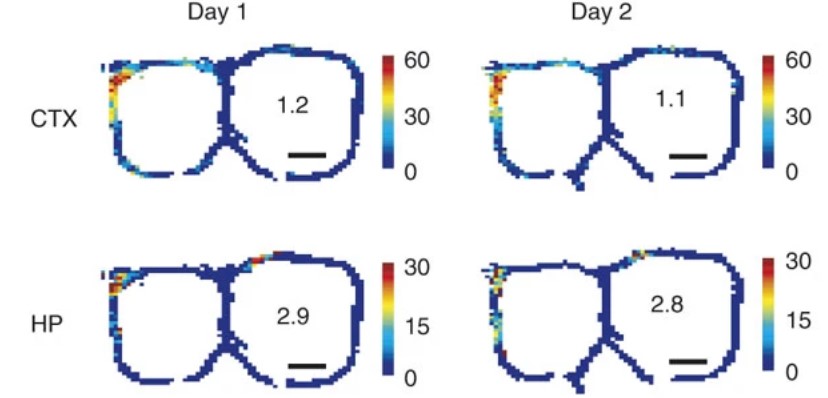
Sleep is hardly just a period of rest. In fact, Matt Wilson, Sherman Fairchild Professor of Neuroscience, has discovered that sleep involves mentally rerunning the activities of the day. His lab has shown that this “replay” of memories takes many forms, suggesting that the brain uses sleep as a period of time to process and reconsider experience in multiple ways, chopping it up, running it in reverse, and speeding it up. The brain appears to be using experience to build something greater – a model of the world.
Wilson was a postdoc when he first discovered that memories are replayed in a brain region called the hippocampus during sleep in the 1990s. He noticed that a sleeping lab rat was producing the same electrical activity in hippocampal neurons that it had produced while actually running a maze earlier in the day. He continued to study the phenomenon. In 2002, a year after reporting such real timescale replay during REM sleep, his lab showed that replay occurs at 20 times the speed of actual experience during the slow wave phase of sleep. In 2007, the lab also reported that the hippocampus was not alone in generating replay during sleep: it coordinates with the visual cortex so that the two regions replay the same memories together.

By 2006, though, Wilson’s lab had made the striking discovery that even during periods of wakeful rest, rodents would replay the memories of their maze-running experience, but would do so in reverse (as if retracing their steps). Then in 2009 they extended those findings to track how replay occurs during rest in much larger environments where rodents have covered more ground. They found that replay can be forward or reverse, is time compressed and can start from any location in the area (e.g. the animal might can really pick any point it has experienced and remember the movement sequence from there).
Observing how replay occurs is one thing, but testing its significance is another. In 2010 the lab demonstrated that replay during rest is important for learning by purposely disturbing replay activity in the hippocampus of rats after they ran a maze. Rats in which restful replay was disturbed didn’t learn as well as rats whose restful replay was not disturbed. Two years later they further linked replay with the consolidation of memories when they showed that if they paired a sound with locations in a maze then they could bias replay of those sound-associated memories by playing the sound during non-REM sleep. The next year, in collaboration with the lab of Picower Professor Susumu Tonegawa, they found that in mice genetically modeling schizophrenia, replay during sleep did not occur, suggesting a way in which the disease interferes with information processing in the brain.

